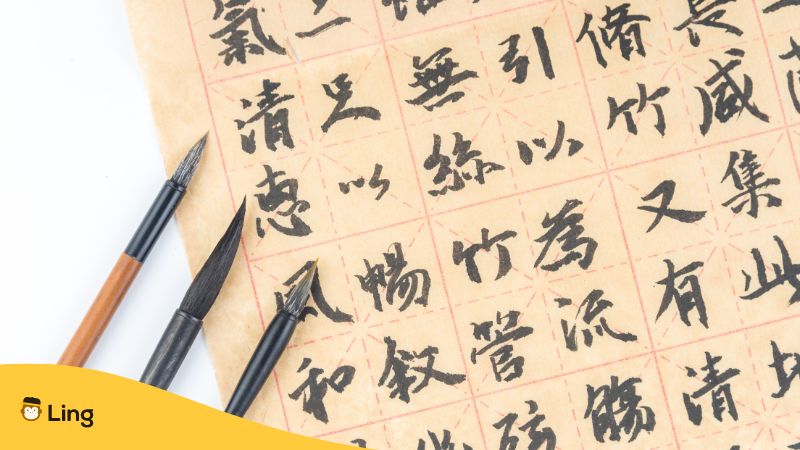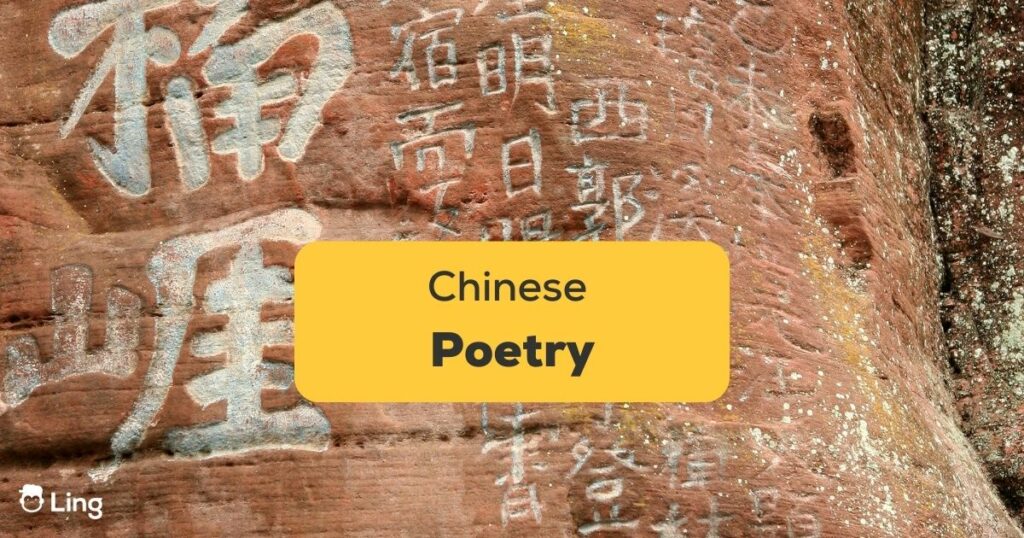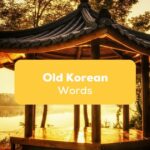The distinct beauty of Chinese poetry or Shīgē (诗歌: simplified, 詩歌: traditional) is extremely captivating. The unique use of rhyming terminologies, similes, and metaphors creates a unique style that is often difficult to replicate. The beauty of these poems can be attributed to the many years of tradition, culture, and history that have helped shape this style. Let’s get to know more about this in the sections below!
Chinese poetry is unique because it uses special forms like “tanka” and “regulated verse.” It’s full of beautiful pictures and symbols. If you’ll ask me, it’s like a secret language that speaks from the heart and soul. But what features make Chinese poetry so special? Let’s take a look at that in the sections below.
History Of Chinese Poetry
Chinese poetry has a rich history and tradition that you can easily fall in love with. Many famous Chinese poets have left their mark on the world of literature not only in China but in other parts of the world as well. Du Fu, Li Bai, and Su Sh are just a few examples of the many great Chinese poets who significantly contributed tons to Chinese poetry.
- Du Fu is known for his poignant and powerful poems reflecting his time’s social and political structure.
- Li Bai, on the other hand, is known for his romantic and mystical style
- Su Shi is known for his role in the development of Ci poetry, and his works are considered some of the greatest examples of ci poetry.
Chinese poetry has also evolved over time, and today you can notice a vibrant and diverse modern Chinese poetry scene. The influence of Western poetry on modern Chinese poetry has been significant, and many contemporary Chinese poets have been experimenting with new forms and styles. Additionally, political and social issues play a big role in modern Chinese poetry, and many contemporary Chinese poets use their poetry as a means of expressing their thoughts and feelings on these issues.
Song And Tang Dynasty Poetry
The Song and Tang dynasties were two crucial eras in Chinese poem history, both of which produced a substantial number of poets and poetry that continue to influence Chinese culture and folk songs.
Song Dynasty
During the Song Dynasty, poetry became more prevalent among the educated elite, and many poets were part of the imperial court. They are celebrated for their use of language, imagery, and symbolism, as well as their attention to form and structure. The greatest Chinese poets of the Song Dynasty include Su Shi, Li Qingzhao, and Fan Chengda.
Tang Dynasty
The Tang Dynasty, on the other hand, is considered the pinnacle of Chinese poetry. Poetry was an essential aspect of the Tang court, and many poets were part of the imperial circle. Poets of this period were renowned for their use of striking imagery and metaphors, as well as their capacity to express complex emotions and ideas. Some of the greatest names of the Tang Dynasty are Li Bai, Du Fu, and Wang Wei.
Both the Song and Tang dynasties produced a wealth of poetry that continues to shape Chinese literature and culture. Poems from these dynasties are still widely read and studied today and continue to inspire poets and writers worldwide.
Features Of Chinese Poetry
One of the most striking features of Chinese poetry is the use of imagery and symbolism. Chinese poets have always been adept at using nature and everyday objects as symbols to convey deeper emotions and meaning. For instance, a poem about a plum blossom can symbolize persistence and resilience in the face of adversity. This use of imagery and symbolism creates a rich tapestry of meaning that is unique to Chinese poetry.
Another aspect that makes Chinese poetry stand out is the use of tone and rhythm. Chinese is a language of tonal patterns, meaning the interpretation of a character might change based on the tonal pattern utilized. This is an essential aspect of Chinese poetry, as the tone used can change the mood and feeling of a poem. Additionally, the rhythm of Chinese poetry is unique, with a strong emphasis on the final syllable of each line, which creates a sense of resolution and closure.
Different Forms
Chinese poetry is also unique in its forms. Traditional Chinese poetry is divided into three main forms: shi, ci, and qu.
- The shi form is a traditional form of poetry characterized by its strict rules and structure.
- The ci form, on the other hand, is a form of poetry that is more flexible and allows for more creative expression.
- The qu form is a form of poetry that is sung and is usually accompanied by music.
Each form has unique features and characteristics, and Chinese poets have mastered using these forms to create beautiful and meaningful poetry.
Useful Vocabulary

Let’s look at some words you will encounter while reading Chinese poetry. These will help you expand your Chinese vocabulary.
| English | Simplified Chinese | Traditional Chinese | Romanization |
| Bashful | 害羞的 | 害羞的 | Hàixiū De |
| Clamor | 叫嚣 | 叫囂 | Jiàoxiāo |
| Cling | 紧贴 | 緊貼 | Jǐn Tiē |
| Dearly | 亲爱的 | 親愛的 | Qīn’ài De |
| Difficult | 难的 | 難的 | Nán De |
| Dispel | 打消 | 打消 | Dǎxiāo |
| Dwell | 住 | 住 | Zhù |
| Grief | 悲伤 | 悲傷 | Bēishāng |
| Homestead | 家园 | 家園 | Jiāyuán |
| Indeed | 的确 | 的確 | Díquè |
| Inseparable | 形影不离 | 形影不離 | Xíngyǐngbùlí |
| Mingle | 交融 | 交融 | Jiāoróng |
| Sorrow | 悲哀 | 悲哀 | Bēi’āi |
| Strenuous | 吃力的 | 吃力的 | Chīlì De |
| Whirl | 旋转 | 旋轉 | Xuánzhuǎn |
| Willow | 柳 | 柳 | Liǔ |
In A Nutshell

Chinese poetry is a beautiful and rich art form full of meaning and significance. The use of imagery and symbolism, the unique sound created by the combination of tone and rhythm, and the rich history and tradition behind it all make Chinese poetry truly special. If you want to learn more about this beautiful language, check out Ling, as it has several interactive features that help you learn faster. 10-15 minutes on Ling will get you ahead of your language learning goals.
Are you ready to start now? Download the Ling App from Google Play Store and Apple App Store now, and prepare to be fluent in Chinese soon!



































































